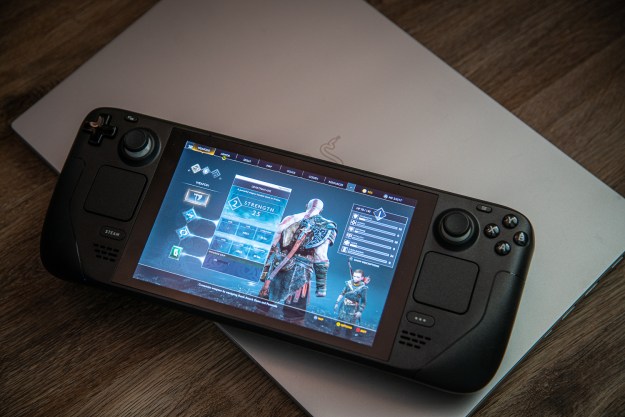
Valve unveiled its very own operating system known as SteamOS in the first of three promised announcements coming this week.
The new operating system is built on Linux, and was designed specifically for the “TV and the living room,” according to the announcement page. SteamOS will be free to download, but no specific time table was given for the release, other than “soon.”
“As we’ve been working on bringing Steam to the living room, we’ve come to the conclusion that the environment best suited to delivering value to customers is an operating system built around Steam itself,” Valve stated. “SteamOS combines the rock-solid architecture of Linux with a gaming experience built for the big screen. It will be available soon as a free stand-alone operating system for living room machines.”
According to Valve, the new OS will run on “any living room machine.” How that will work exactly wasn’t spelled out, but it does further fuel the speculation that one of the remaining announcements from Valve this week will be the long-awaited Steam Box. What better living room hardware to utilize SteamOS than a device made specifically for Steam?
The SteamOS will also feature four new Steam features, including: In-home Stream, allowing you to load up a game on your primary computer and then stream it to a SteamOS device over a home network; Music, TV, Movies available through Steam; Family Sharing, which was announced recently; and Family Options, which are essentially more customizable parental locks.
These features will be available as part of the new SteamOS, as well as through the standard Steam client.
“Steam is not a one-way content broadcast channel, it’s a collaborative many-to-many entertainment platform, in which each participant is a multiplier of the experience for everyone else,” Valve stated. “With SteamOS, ‘openness’ means that the hardware industry can iterate in the living room at a much faster pace than they’ve been able to. Content creators can connect directly to their customers. Users can alter or replace any part of the software or hardware they want. Gamers are empowered to join in the creation of the games they love. SteamOS will continue to evolve, but will remain an environment designed to foster these kinds of innovation.”
Editors' Recommendations
- A Redditor ‘didn’t know’ about the Steam Deck, so they built their own
- The Ayaneo Next Lite is the first Steam Deck rival to feature SteamOS
- Steam Deck OLED fixes the worst part of Valve’s handheld
- Happy birthday, Steam Deck: console and PC gamers debate its first year
- How to win a free Steam Deck during The Game Awards 2022


